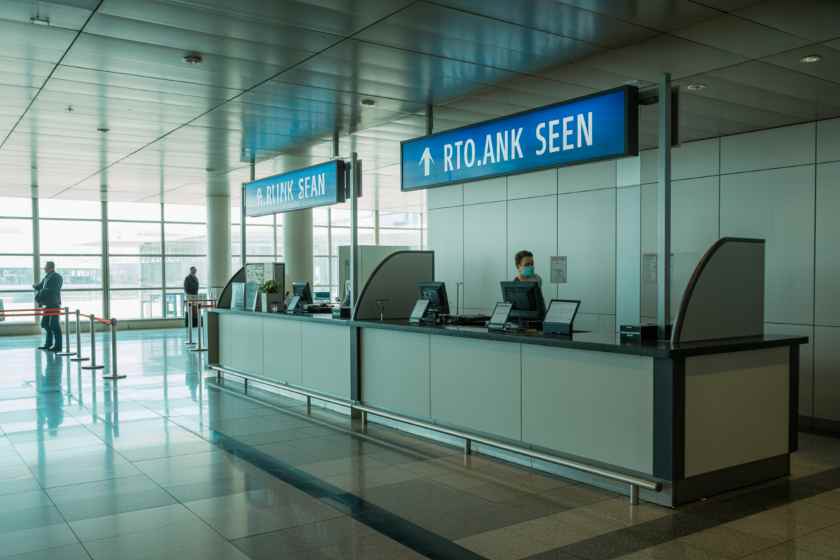Published on
October 8, 2025
European low-cost airline Wizz Air reported carrying 24.5 million passengers over the summer period for the year 2025, the highest recorded in the airline’s history. This was a 10 per cent increase in passenger volume from the year prior. The airline also recently stated that Tel Aviv, among other markets, is a primary target for expansion. This is in line with the goal for Wizz Air to consolidate its competitive stance in various regions of Europe and the Middle East.
As of September 2025, the airline has a total passenger volume of 6.265 million, marking an 8.8 per cent increase year over year. The total volume for the year is projected to reach 75 million by year-end. This trend is also seen in Wizz Air’s flight utilisation, which is nearly 93 per cent, further illustrating the airline’s growing profitability and demand for its services.
Major Expansion: Growth in the Middle East and Tel Aviv.
Wizz Air considers the expansion to Tel Aviv, Israel’s primary international gateway, of great importance as the company continues to widen its reach in the Middle East region. Wizz Air has assigned Tel Aviv’s Ben Gurion International Airport as its next hub, anticipating a surge in demand for travel to and from Israel with other European and Middle Eastern countries. This much anticipated shift in strategy will allow the airline to expand its reach and close several gaps in the market for customers wanting to travel to or from Israel, Europe and the Middle East and improve connectivity for international travelers.
Israel is an important economic hub and famous for its technology and business opportunities, along with its captivating culture and religious sites. Beyond the additional, Wizz Air aims to provide a relatively low-cost route from Tel Aviv to major cities around Europe to allow greater convenience for travelers and improve Wizz Air’s connectivity to Europe.
It is projected that the airline’s expansion to Tel Aviv will provide additional value to travelers flying from Europe and to and from Israel, as airfare will be significantly cheaper for travel for tourism, business meetings, and cultural visits. With the lower airfare ticket options for flights, Wizz Air is attempting to promote tourism to Israel’s busy capital by making the city within reach.
The unprecedented expansion of Wizz Air is contributing towards the upliftment of European tourism as well. With more than 150 operational and planned routes extending to the Middle East and North Africa, the airline serves as a gateway and an affordably priced airline for visitors to major European cities and attractions. That unprecedented hop of summer tourist traffic offers a clear indication to an increase to the number of travelers using budget flights, irrespective of the distance of the journey, throughout the summer travel season.
For people of not just the European visitors, Europe is an attractive location with its beautiful cities and culture. Wizz Air’s provides low-cost travel to key destinations like Paris, Rome, Budapest, and Berlin, among many others, making European travel even more exciting. While the Wizz Air’s growing fleet and network is an indication of further investments being made, the low chargeable prices for flights is a clear display of their strategy to capture the European tourism market.
The growing number of travellers illustrates the recovery of air travel during the pandemic, and the recovery of tourism in Europe has been noticeably pronounced throughout the continent. Wizz Air has further encouraged tourism by facilitating affordable travel, allowing international tourists to travel to multiple cities in a single trip and supporting the development of cities which host Wizz Air.
Sustainability and Focus on the Environment
Sustainability has taken a more advanced form in Wizz Air, which is growing contemporarily. The company has been able to sustain an emission level of 49.8 grams of CO2 per passenger every kilometre during the month of September in 2025, and has managed to stay under the 50-gram monthly performance for two consecutive months. This is the most recent development which Wizz Air has made towards emission reduction. The company has also expanded its operations, improved its environmental performance and reduced its carbon footprint by maintaining a modern fleet which comprises the more fuel-efficient A321neo aircraft.
Of all its competitors, Wizz Air carries a minimal relative emission burden, with Ryanair’s emissions at 65 grams per passenger per kilometre and Lufthansa’s at 87.5 grams. As a result, Wizz Air’s environmental advantages will likely be emphasised by consumers, who are increasingly seeking sustainable alternatives in air travel. Moreover, Wizz Air’s environmentally conscious policies complement the truly greener aviation movement, which is essential to the future of travel globally.
Future Growth and Expansion Plans
As a result of Wizz Air’s continued success, the airline is poised to continue adding to its fleet and route network. Wizz Air is seeking to enhance its market share by offering additional services in the Middle East, Asia, and Africa, enhancing the travel options for customers. To increase the airline’s market position in Europe and other markets, Wizz Air is committed to continuous improvement in quality, increased capacity, and a reduction in emissions.
The newly established route to Tel Aviv in conjunction with a record number of passengers flown, and a newly established reputation for emissions performance, positions Wizz Air for sustained growth. Flight passengers are likely to benefit the most as a result of Wizz Air’s improved record, as it means more value for money travel, offering more destinations at reduced fares with a higher service offering.
